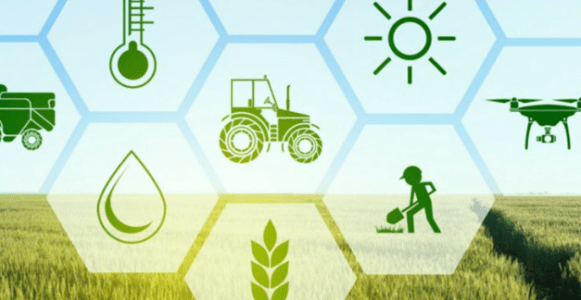Australia has proposed aiding India in developing Climate-Resilient Farming and grain storage technology in exchange for India’s reduction of import duties on Australian agricultural imports, according to sources familiar with the matter.
Importance of Reducing Barriers to Agricultural Products
Australian High Commissioner to India, Philip Green, emphasized the significance of reducing barriers to agricultural products. He stated, “We believe this can be mutually beneficial for India as our agriculture sector is eager to collaborate more closely with India to enhance its agricultural capabilities, including improving yields, developing pest and drought-resistant crops, and enhancing storage and transportation facilities.”
Australia Aid To Climate-Resilient Farming
Green added, “Australia’s exports of food and fibre can serve as inputs for Indian industries. Therefore, increased exports of cotton or wool from Australia, for instance, can contribute to India’s successes.”
Phasing Out Import Duties
While the import duty on Australian vegetables currently stands at 30 per cent, it will be phased out over seven years, with fruit import duties of 15-30 per cent to be halved over the same period.
Sensitivity Around Opening Agricultural Sector to Imports
However, opening up the agricultural sector to imports is a sensitive issue for India, given that a significant portion of its population relies on farming and related activities for their livelihoods.
Deliberations and Considerations
A Commerce Ministry official, speaking anonymously, confirmed that while Australia has requested duty reductions on its agricultural products, India has not yet offered any such concessions. The official stated, “We are carefully considering how to offer the best deal without adversely affecting our farming community.”
Status of CECA Negotiations
Initiated in May 2011, talks between India and Australia for a Comprehensive Economic Cooperation Agreement (CECA) led to an interim agreement, the Economic Cooperation and Trade Agreement (ECTA), coming into effect on December 29, 2022. The CECA aims to further the outcomes of the ECTA.
Trade Discussions with EFTA
During trade discussions with the European Free Trade Association (EFTA), India rejected demands for market access to cheese and dairy products from the four-nation bloc.
Conclusion
Australia’s proposal to aid India in developing Climate-Resilient Farming and grain storage technology marks a significant step towards enhancing agricultural capabilities and fostering collaboration between the two nations. While challenges exist, mutual benefits can be achieved through careful deliberations and considerations.
Click Here For More Latest Information
FAQs
- How will reducing import duties benefit India? Reducing import duties can lead to increased collaboration with Australia, enhancing India’s agricultural capabilities and providing inputs for various industries.
- What are the challenges India faces in opening its agricultural sector to imports? India faces challenges due to the significant reliance of its population on farming and related activities for their livelihoods.
- What is the current status of the CECA negotiations between India and Australia? The CECA negotiations were initiated in May 2011, with an interim agreement, the ECTA, coming into effect on December 29, 2022, to further the outcomes of the CECA.
- Why is opening the agricultural sector to imports a sensitive issue for India? Opening the agricultural sector to imports is sensitive due to the impact it could have on India’s farming community, which forms a significant part of the population.
- How can Australia’s exports contribute to India’s successes? Australia’s exports, such as cotton or wool, and Climate-Resilient Farming can serve as inputs for Indian industries, contributing to their successes.










